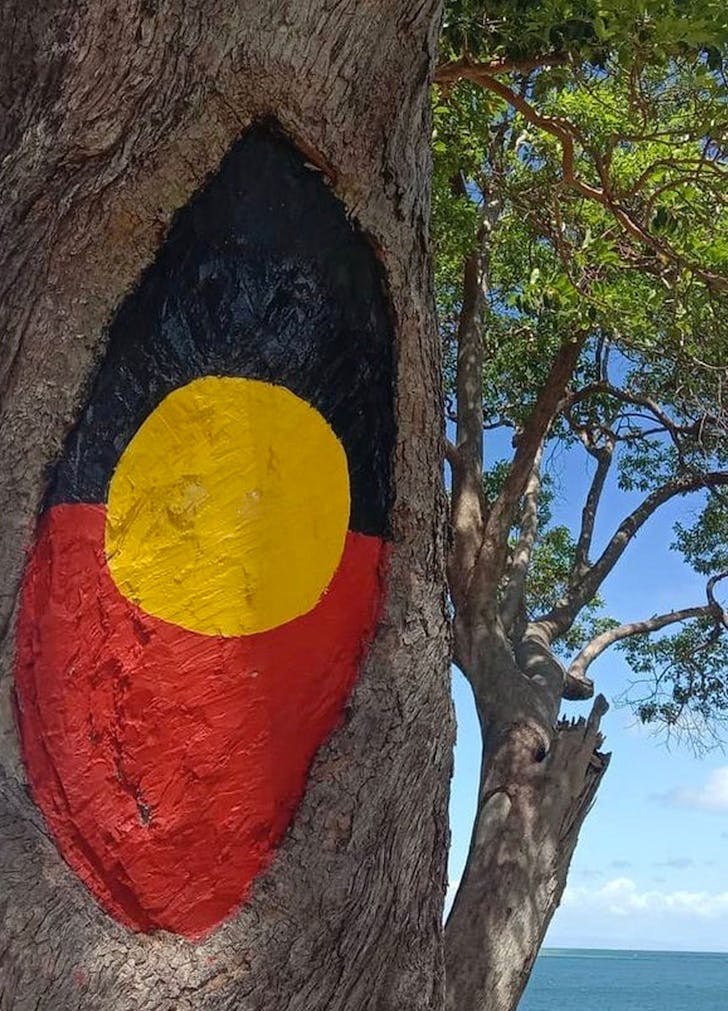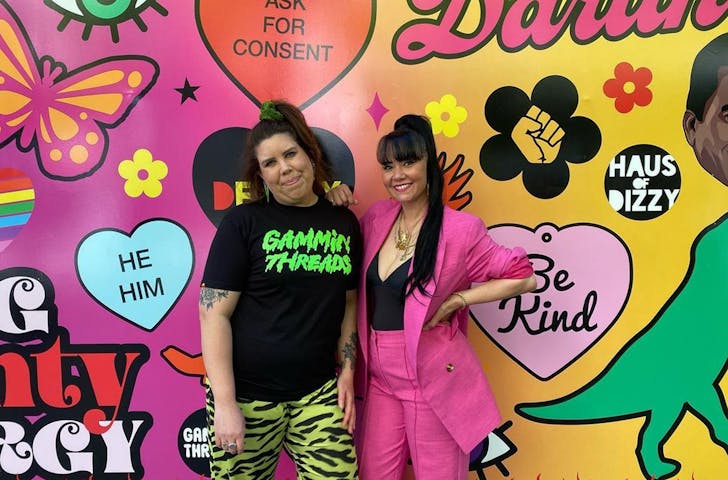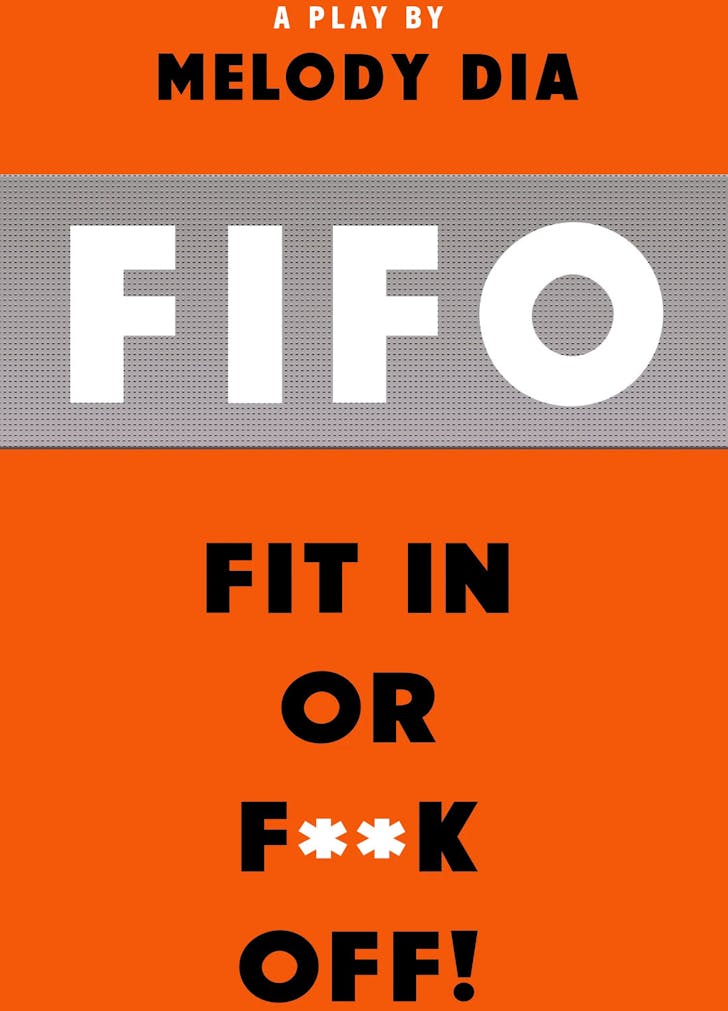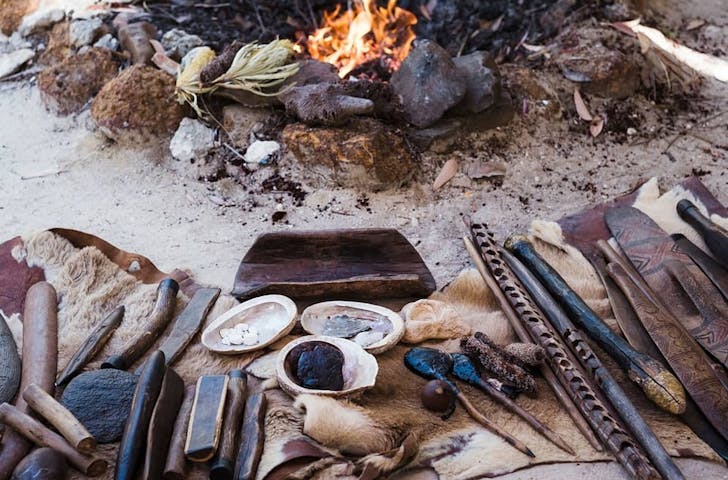Reconciliation Week Is More Than A Morning Tea, Here’s How To Really Act On It
Every year, Australia’s National Reconciliation Week runs from May 27 until June 3.
While Australia’s reconciliation efforts can’t be reduced to just one week of the year (meaning, we should all be actively involved in its underlying agenda every day and as much as can), the week serves as an important reminder and opportunity to educate yourself further and reflect on how you can step up your game as an individual or business. Everyone plays a key part.
This year, the theme is Be Brave. Make Change — a challenge for non-Indigenous Australians to really tackle the unfinished business of reconciliation across Australia. You can also read more on why the responsibility of National Reconciliation Week doesn’t sit with First Nations people right here.
What Is National Reconciliation Week?
National Reconciliation Week doesn’t take place on any old arbitrary week of the year. The beginning and end of the week (being May 7 and then June 3) actually signifies two historic dates everyone should remember.
On May 27 1967, Australia saw its most successful referendum. More than 90 per cent of Australia showed up to vote in favour of giving power to the Australian government to make laws for Aboriginal and Torres Strait Islander people. It also pushed to recognise them in the Census.
On June 3 1992, one of the most prolific Australian High Court decisions was handed down. Widely referred to as the Mabo case (or Mabo v Queensland if you want to go hard on the legal jargon), the legalities were led by Eddie ‘Koiki’ Mabo. As an activist for the 1967 Referendum, Eddie hailed from Mer Island in the Torres Strait, and spent a decade campaigning to have the land rights of the Meriam people, the traditional owners of the Murray Islands (Mer, Sauer and Wider), as well as challenging the notion of ‘terra nullius’ upon Australia’s invasion. His efforts eventuated in legal recognition of Aboriginal and Torres Strait Islander peoples as the Traditional Owners and Custodians of the lands. The success of the Mabo case also brought about the introduction of Native Title.
National Reconciliation Week itself was officially established in 2001 as an annual commitment to offer national leadership on reconciliation.
What Else Do I Need To Know About National Reconciliation Week?
There’s one more important day which creeps up just before May 27—National Sorry Day.
Also known as a National Day of Healing and occuring on May 26, Sorry Day is the anniversary of the Bringing Them Home Report, the result of the National Inquiry into the forced separation of Aboriginal and Torres Strait Islander children from their families, or the Stolen Generation. The day is now in place to remember the Stolen Generations and their descendants and communities, many of whom are still dealing with the trauma, all while considering ways we can help to play a part in bringing our nation closer together than ever before.
So What Can I Do To Show My Support?
Let’s flashback to last year. It’s May 24 and Yorta Yorta rapper Adam Briggs (who you may know as Senator Briggs) posts this very tweet:
“Reconciliation is for white people, you’re the ones who need to reconcile.”
If that cuts deep, it should. Showing your support looks like real truth-telling and not sugar-coating Australia’s history. Show up every day for First Nations people and ask yourself what skills you have, what privileges you’ve been afforded that can raise their voices and help their cause. What that looks like, is totally up to you.
If you need help on where to start, read on for ways you can be brave and make change in your every day.
Check Your Unconscious Bias
To say you don’t harbour unconscious bias would be wrong. We all do to some extent. Colonial perspectives on history have been deeply entrenched in the non-Indigenous psyche. Be honest and check yourself. We can all do better.
Re-Educate Yourself

There’s a myriad of free resources available to re-educate yourself on Australia’s history so you can centre your focus on First Nations knowledge, stories and voices. What do you know about looking after Country with fire, songlines, honouring and healing Country or how First Nations folk see time? If the answer is not much, you’ve got some way to go.
You can start by reading up on why January 26 is not a date to celebrate and hey, flick it over to anyone you think could use a dose of truth-telling.
Epic resources are below (but aren't limited to):
- Common Ground
- From The Heart
- AIATSIS
- ANTaR
- Pay The Rent
- Seed Mob
- Reconciliation Australia
- Closing The Gap
- Place Names In Addresses
Support Blak Business

From deadly tees and statement earrings to digital prints and spicy pantry fillers—you can shop until you drop by truly supporting First Nations-owned businesses. Lucky for you, we’ve rounded up some of our all time favourites right here.
Embrace First Nations Voices

First Nations people are the original storytellers so if you’re not tuning into Yolngu Radio, busting out your morning emails to Barka, feasting your eyes on Leah Purcell’s latest cinematic magic or soaking up the wry humour from Melody Dia’s FIFO - Fit In or F**k Off! During your next staycay—you’re sorely missing out. You can scope the best in First Nations entertainment below.
- The Best First Nations Movies And TV Shows
- The Best First Nations Podcasts
- The Best First Nations Books
You can also embrace First Nations voices by supporting local causes. Getting behind The Uluru Statement From The Heart is really a non-negotiable if you’re serious about making change to Australia’s future. You can also support Our Islands, Our Home—a campaign demanding more climate justice from the government for the Torres Strait Islands. So far, the Australian Federal Government has refused invitations from Traditional Owners to visit and see the impacts of climate change so, get signing and share the petition far and wide.
Absorb Indigenous Culture With These Travel Experiences

Big bucket-list travel destinations like Kakadu National Park and The Daintree Rainforest are really nothing without the 60,000-plus years worth of knowledge and stories from First Nations people. It’s like plating up a bowl of mac ‘n’ cheese without the mac ‘n’ cheese—just an empty experience without the best bit. You can scope out the best Indigenous travel experiences in Australia right here.
Image credit: Urban List, @brooke.maddison.writer, Haus Of Dizzy, Magabala Books, Koomal Dreaming
